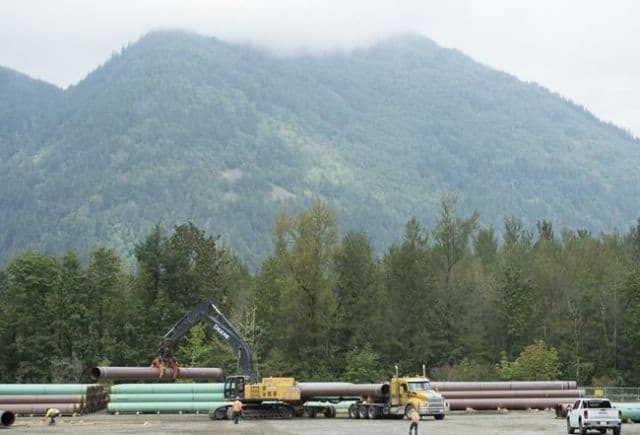
Energy analysts at the Global Business Forum in Banff, Alta., say Canada’s inability to build pipelines to take oil to market and delays in building LNG facilities means it is missing out on opportunities to become a preferred global supplier.
Matt Rogers, a San Francisco-based senior partner with McKinsey and Co., says Canada should be the “advantaged supplier” to North Asia which includes China, Japan and Korea for both crude oil and natural gas.
He says the region’s refineries have been built to use heavy oils with high sulphur content like those produced in the oilsands and the traditional supplier, Venezuela, isn’t keeping up with demand.
Meanwhile, he says liquefied natural gas can be produced more cheaply in Canada than in LNG hubs like Australia because the average temperature is much lower, while Canada also has an advantage because it is closer.
Michael Tran, a New York-based energy strategist for RBC Capital Markets, says Canada missed its chance to be a “first responder” after the drone attacks on Saudi Arabian oil facilities two weeks ago suddenly removed more than five per cent of the world’s oil supply.
He says Canada’s position as holder of the third-largest oil reserves in the world doesn’t prevent it from following the path of Venezuela, where internal geopolitical issues have resulted in what could be a “lost decade” in terms of oil production.
“Canada is struck with a different political issue and it would be wildly unfortunate if Canada was struck with a lost decade,” Tran said, adding the situation can still be repaired.
“We certainly haven’t missed our opportunity. We still have a window to get it right,” he added.


